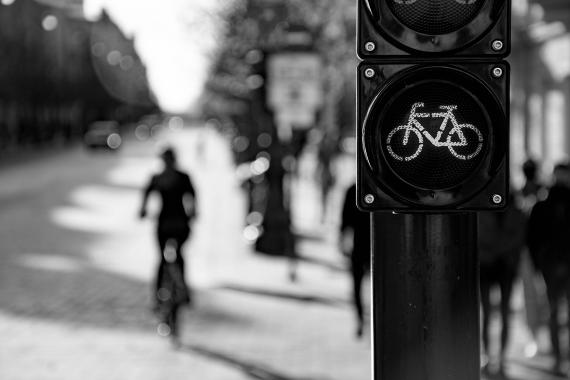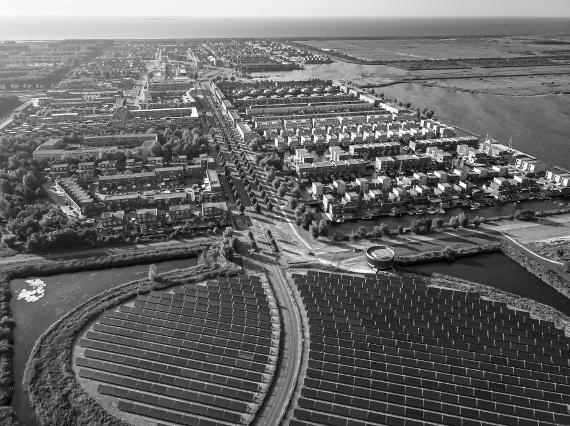High-Level Opening Session
Day 1 - 16 November

14:00 - 15:00 CET
Given the strong regional variation in the economic and social consequences of COVID-19, subnational governments play a key role in promoting a sustainable recovery. To what extent have the response measures to address the health and economic crises helped or otherwise affected efforts to address environmental challenges? What can we learn from short-term support measures, including bailout programs for firms and sectors with large environmental footprints, and their effects on environmental sustainability? What could be done to better guide the longer-term recovery paths towards a more resilient and sustainable growth model that places green growth as a core concept? How to better design cities as well as mobility of people and goods for a greener and more resilient future? What synergies could be forged among efforts to address climate, air quality and health challenges? How can our built environment become safer and greener to enhance public health (e.g. urban density, regulation of polluting transport modes and activities) and to achieve a low-carbon future? What opportunities and challenges have been presented by the COVID-19 crisis for designing accessible and sustainable cities? High-Level speakers addressed these and related topics to set the scene for the 2021 GGSD Forum.
Moderator:
- Ingrid BARNSLEY, Deputy Director, Environment Directorate, OECD.
Welcome remarks:
- Mathias CORMANN, Secretary General, OECD.
Scene-setting:
- Young Tae KIM, Secretary General, International Transport Forum (ITF).
High-Level keynote speakers:
- Carlos Eduardo CORREA ESCAF, Minister of Environment and Sustainable Development, Colombia.
- Sharon DIJKSMA, Mayor of Utrecht, The Netherlands.
- Federica FRICANO, Director European Affairs and Climate Actions, Ministry of Ecological Transition, Italy.
Session 1 - Urban transport and city design
Day 1 - 16 November

15:20 - 16:50 CET
While often served by better health care facilities than rural areas, cities have been epicentres of the pandemic in several countries. The pandemic has accelerated the adoption of new lifestyles and technologies, and increased the use of private cars and bikes due to concerns over the risk of infection on crowded public transport. This session explored how COVID-19 has affected urban residents’ behaviour, and created challenges and opportunities for green urban mobility and city design. What role can urban planning play in reducing air pollution, mitigating climate change and promoting people’s well-being? What are the implications for mass transit, and shared and soft mobility in the “new normal”? How to best allocate public space in cities? How can concepts such as “localisation of the Sustainable Development Goals” and “the 15-min city” help to design greener cities?
Moderator:
- Aziza AKHMOUCH, Head of Cities, Urban Policies and Sustainable Development Division, Centre for Entrepreneurship, SMEs, Regions and Cities, OECD.
Scene-setter:
- Karen VANCLUYSEN, Secretary General, POLIS.
Panellists:
- Einat KALISCH-ROTEM, Mayor of Haifa, Israel.
- Carlos MORENO, Associate Professor and scientific director of the ETI Chair « Entrepreneurship – Territory – Innovation » IAE Paris - Sorbonne.
- Areli CARREON, Bicycle Mayor of Mexico City, founder of Bicitekas.
- Walid OUESLATI, Senior Economist, Environment Directorate, OECD.
Policy questions
- What are the implications of the COVID-19 pandemic for urban mobility? How can urban planning and the application of the "avoid - shift - improve" principle help to design sustainable and resilient urban transport systems?
- How can cities be designed in order to contribute to incease citizens' well-being while also reducing pollution and carbon emissions?
- How can place-based policies, including targeted investment in human capital and infrastructure, support the global achievement of the Sustainable Development Goals?
Session 2 - Rethinking sustainable tourism
Day 2 - 17 November

11:00 - 12:30 CET
International and domestic tourism have been heavily affected by the pandemic. While the tourism industry can contribute to sustainable development and it is explicitly mentioned in several SDGs targets (e.g. targets for SDGs 8, 12, 14), pre-pandemic rapid growth in visitors led to negative economic, social and environmental impacts in a number of regions.
As governments support the restart of the tourism sector, this session discussed the role of multiple policies (e.g. transport, tourism, environmental) to ensure a green recovery and long-term sustainability of tourism. How to promote the horizontal (e.g. transport, environment, agriculture, innovation, education, health, tourism policies) and vertical (across national, regional, and local governments) coordination needed for the provision of sustainable infrastructure for tourism? What programmes can help local communities respond to fluctuations and eventual growth in visitors?
Moderator:
- Céline KAUFFMANN, Head, Entrepreneurship, SME and Tourism Division, OECD.
Scene-Setter:
- Simon UPTON, Parliamentary Commissioner for the Environment, New Zealand.
Panellists:
- Constanza OLAYA CANTOR, Director of Quality & Sustainable Development of Tourism, Ministry of Commerce, Industry and Tourism, Colombia.
- Jakob DIETACHMAIR, Deputy Director, Commission Internationale pour la Protection des Alpes (CIPRA), Leichtenstein.
- Jérémie FOSSE, Co-founder and President, eco-union, Spain.
- Virginia MESSINA, Senior Vice-President, Advocacy and Communications, World Travel & Tourism Council.
Policy questions
- How can we ensure that recovery measures targetting the tourism sector benefit local economies, communities, and the environment? How can we measure the degree of success for sustainable tourism?
- What is the role of cross-government co-ordination?
- What policy approaches can encourage quality investment in tourism? What is the role of digital skills?
Session 3 - Energy efficiency and the built environment
Day 2 - 17 November

13:45 - 15:15 CET
In many countires, green recovery measures have targeted the building sector which accounts for a third of global GHG emissions and has high job-creation potentials. As people spend more time at home for teleworking, energy use has shifted from commercial to residential buildings. Emerging evidence suggests that energy savings from reduced commuting could more than offset increased residential energy use from less energy-efficient homes, the trend of moving to larger homes in suburban/rural, and intensified IT use.
This session discussed the implications of the pandemic for energy efficiency in the buildings sector, and how green recovery measures can enhance its sustainability. What lasting impacts has the pandemic had on commuting and office occupancy? How can building renovation policies benefit the environment and people’ wellbeing? What innovative policy and financing instruments can address the barriers to energy efficiency investments? How could “deep retrofit” be promoted and what role for energy service companies (ESCOs)? The session also investigated the implications of growing residential energy use for carbon-pricing policies and energy poverty.
Moderator
- Walid OUESLATI, Senior Economist, Environment Directorate, OECD.
Scene-Setter
- Brian MOTHERWAY, Head of Energy Efficiency Division, IEA.
Panellists:
- Hans van STEEN, Head of Unit and Advisor, Just Transition, Consumers, Energy Efficiency and Innovation (ENER.B), European Commission.
- Mónica GASMURI DEL CURTO, General Manager, ANESCO Chile.
- Arik LEVINSON, Professor of Economics, Georgetown University, United States
- Atshunito OSHIMA, Senior Policy Analyst, Cities, Urban Policies and Sustainable Development Division, OECD
Policy questions
- How did the COVID-19 pandemic affect energy use in buildings and whith what implications for carbon emissions?
- What barriers can undermine the joint objective of energy efficiency improvements and economic growth pursued by the green recovery?
- How can we ensure that policies to promote a more sustainable energy use in the building sector also contribute to addressing energy poverty?
Session 4 - Greening medium and long-distance transport
Day 2 - 17 November

15:35 - 17:05 CET
Many governments have intervened to support airlines, which is one of the hardest hit sectors by the Covid-19 crisis. Yet, the findings of the OECD Green Recovery Database shows that significant shares of funding went to support this carbon-intensive sector often without any environmental conditionalities. Restoring air connectivity will be crucial for economic recovery, but this need to be compatible with concerns over the environmental and carbon footprints of the aviation sector. At the same time, rail connectivity is becoming competitive with short-haul flights.
This session explored the role of recovery measures in greening of medium- and long-distance transport. What is the role of carbon pricing to mitigate carbon and other emissions from aviation when fuels are often exempt from taxes? What innovations could help to decarbonise aviation, and how could policies help to unlock them? What are the inter-modal complementarities and substitutability? The session also discussed progress in measuring aviation carbon emissions, and the implications of the pandemic for the Carbon Offsetting and Reduction Scheme for International Aviation (CORSIA).
Moderator:
- Jagoda EGELAND, Advisor to the Secretary-General, International Transport Forum (ITF).
Scene-Setter:
- Jari KAUPPILA, Head of ITF Secretary-General's Office and Head of Quantitative Policy Analysis and Foresight Division, International Transport Forum (ITF).
Panellists:
- Jane HUPE, Deputy Director, Environment International Civil Aviation Organization (ICAO).
- Marc HAMY, Vice President, Corporate Affairs, Sustainability and Environment, Airbus.
- François DAVENNE, Director General of International Union of Railways (UIC).
- Cait HEWITT, Deputy Director, Aviation Environment Federation, UK.
- Andreas SCHÄFER, Professor, Chair in Energy and Transport, UCL Energy Institute, UK.
Policy questions
- What are the benefits and challenges of national policy action to green aviation? How to unlock bilateral and multilateral collaboration between/among countries?
- What innovations are needed for a low-carbon aviation? What are the key barriers to their adoption?
- How can inter-modality between air and rail transport be promoted?
Session 5 - Tracking and analysing green recovery measures
Day 3 - 18 November
![]()
14:00 - 15:30 CET (virtual session only)
A number of initiatives are analysing green recovery plans across countries. This session, jointly organised with the Green Growth Knowledge Partnership (GGKP), brought together leading experts to discuss key findings, and the major challenges and opportunities they see ahead. Is the rhetoric on green recovery met by the reality of expenditure plans? What should the green growth community focus on in supporting a COVID-19 response? And what are the key lesson learnt and pitfall to avoid from previous economic recovery measures?
Moderator:
- Benjamin SIMMONS, Head, Green Growth Knowledge Partnership.
Panlellists:
- Julia REINAUD, Senior Director, Europe, Breakthrough Energy.
- Francesco VONA, Senior Economist, OFCE Sciences-Po and Adjunct Visiting Professor, University Ca' Foscari of Venice.
- Gabriele WAGNER, Advisor, Deutsche Gesellschaft für Internationale Zuzammenarbeit (GIZ) GmbH GIZ.
- Oliver GREENFIELD, Convenor, Green Economy Coalition.
- Enrico BOTTA, Policy Analyst, Environment Directorate, Green Growth and Global Relations Unit, OECD.
Policy questions
- How "green" are recovery packages introduced by countries in response to the COVID-19 pandemic? And can they deliver a just green transition?
- How can we ensure that recovery measures speed-up the research and development of the green technologies needed to meet the Paris agreement objectives?
- What are the key lessons-learnt from previous economic recovery packages for the green transition, and how we can apply them to the COVID-19 recovery?
Closing Remarks
Day 3 - 18 November
15:30 - 15:35 CET
- Rodolfo LACY, Director, Environment Directorate, OECD.

